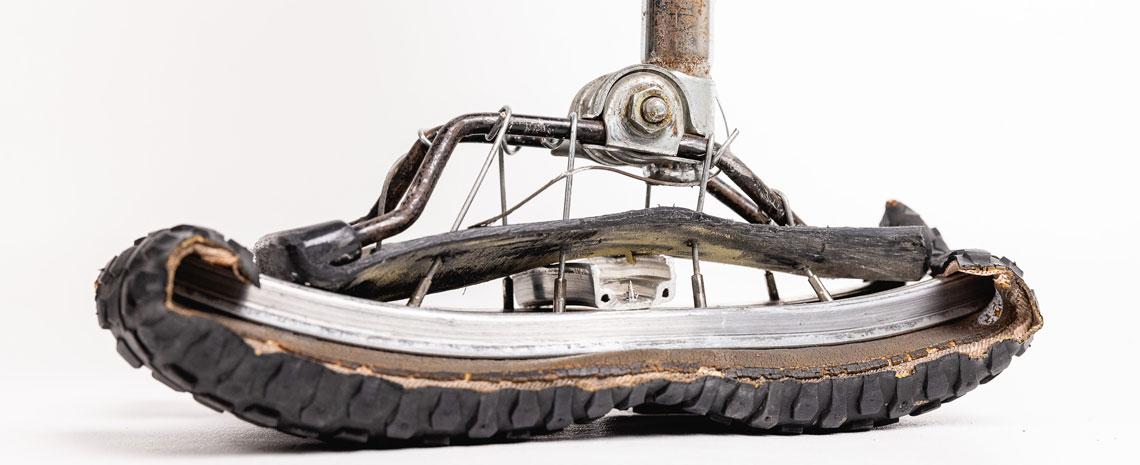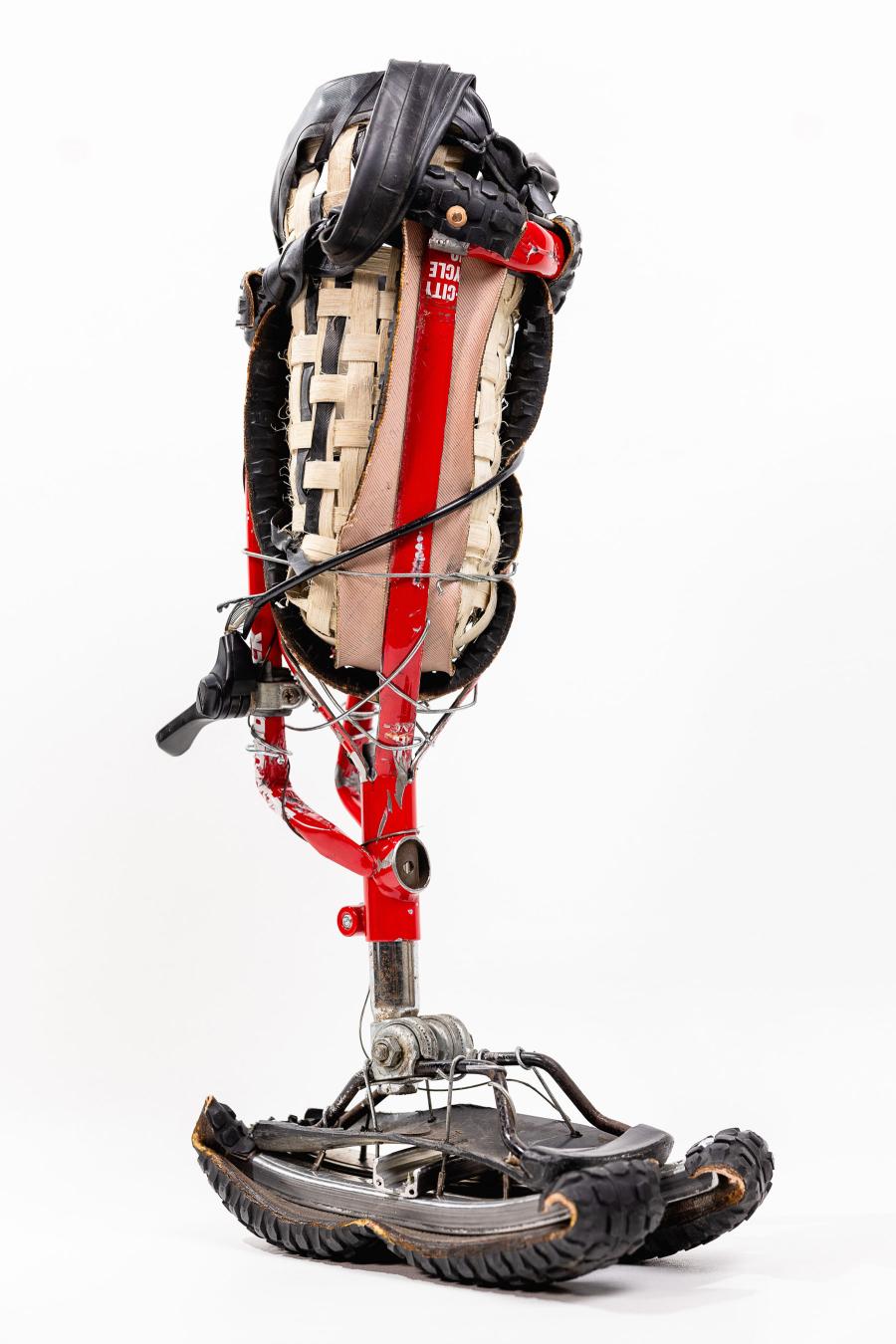MSU students reimagine prosthetics with help from MSU Bikes

Danielle Fowler
July 3, 2025
At Michigan State University, discarded bicycles are finding new life—and not in the way you might think.
The senior capstone project for the MSU College of Engineering, a collaboration between MSU Bikes, the Resource Center for Persons with Disabilities (RCPD), and a group of senior engineering students explores how old bikes can be transformed into affordable, DIY prosthetic limbs. The project aims to bring mobility and dignity to people in underserved communities around the world.
Ben Hogan, a former student mechanic and one of MSU Bikes’ first hires, now works as a certified prosthetist. His career in prosthetics, combined with a deep knowledge of bicycle mechanics, laid the foundation for this initiative. After working in Guatemala, Ben witnessed firsthand the overwhelming need for accessible prosthetics.
"Very often, amputees in these areas don’t have access to a prosthetic limb," explained Jordyn Porter, one of the MSU engineering seniors involved in the project. This is due to a lack of accessibility and the high cost of modern prosthetics. "Meanwhile, bikes are everywhere—abandoned, rusting, and ready to be repurposed."
Ben's idea was simple but powerful: leverage the strength and structure of bicycle frames and many of their parts to create low-cost prosthetics that could be assembled with common tools and limited resources.

Working closely with Ben and supported by MSU Bikes, the team of senior engineering students which included Sydney Bush, Breanna Marsin, Jordyn Porter, Corey Smith, and Abbey Yager and led by faculty advisor Dr. Lik-Chuan Lee, spent the semester designing, prototyping, and testing a lower-limb prosthetic built primarily from bike parts. Their goal was to make something durable, safe, and—most importantly—reproducible with minimal tools and materials.
"Everything was bent by hand," said Porter. "We used only basic tools like wrenches and screwdrivers—things people are likely to have on hand or in a basic repair shop."
Finite Element Analysis (FEA) software helped guide design decisions, ensuring the prosthetic could withstand stress and remain structurally sound. Multiple iterations improved comfort, stability, and adjustability, all while keeping the device lightweight and accessible.
Beyond the technical achievement, the team is focused on long-term impact. They’re developing an illustrated guide—similar to an IKEA manual—that walks users step-by-step through the prosthetic-building process. The hope is that bike mechanics, health workers, or individuals in low-resource settings could use the guide to start their own grassroots prosthetics services.
“Each prosthetic can be customized for the individual user,” said Tim Potter, sustainable transportation manager for MSU Bikes. “In the future, it could even be possible for someone to start a business creating these types of prosthetics for people in their community.”
This senior project, featured at MSU’s College of Engineering Design Day, is one step in the process of iteration. "We’re setting it up so the next team of students can pick it up where we left off and expand it," said Porter. Future improvements could include exploring alternative materials like aluminum or rawhide and adapting the design for above-knee prosthetics.
MSU Bikes, a unit of Infrastructure Planning and Facilities (IPF), not only provided mechanical expertise and mentorship but also reinforced the idea that sustainable solutions often begin with what's already available.
As the students graduate and pass the torch, they prove that a simple bike can carry someone in more ways than one.
Interested in learning more about MSU Bikes or how to get involved in future sustainability or humanitarian engineering projects? Visit the MSU Bikes website.
